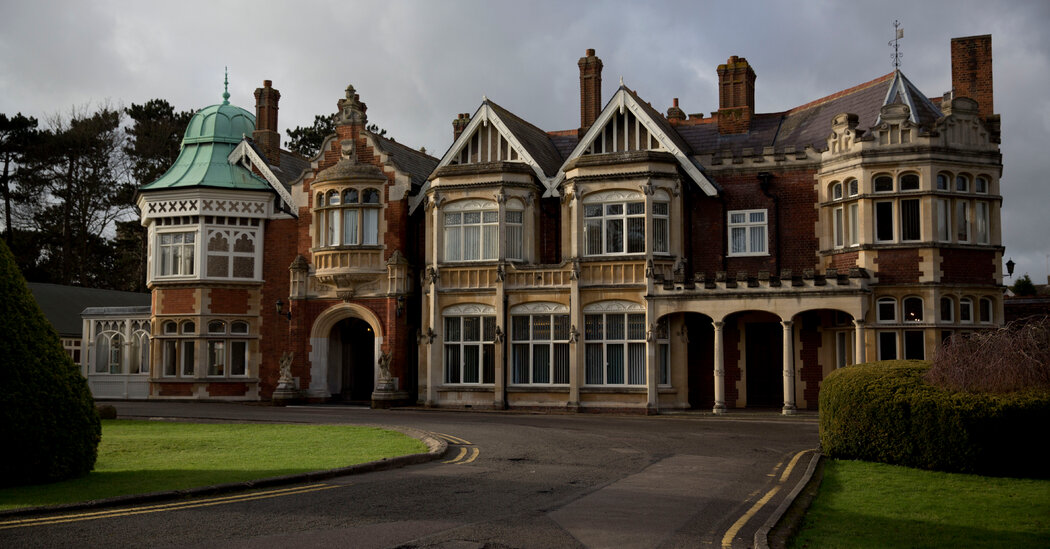In 1950, Alan Turing, the gifted British mathematician and code-breaker, published an academic paper. His aim, he wrote, was to consider the question, “Can machines think?”
The answer runs to almost 12,000 words. But it ends succinctly: “We can only see a short distance ahead,” Mr. Turing wrote, “but we can see plenty there that needs to be done.”
More than seven decades on, that sentiment sums up the mood of many policymakers, researchers and tech leaders arriving on Wednesday at Britain’s A.I. Safety Summit, which Prime Minister Rishi Sunak hopes will position the country as a leader in the global race to harness and regulate artificial intelligence.
Governments have scrambled to address the risks posed by the fast-evolving technology since last year’s release of ChatGPT, a humanlike chatbot that demonstrated how the latest models are advancing in unpredictable ways.
Future generations of A.I. systems could accelerate the diagnosis of disease, help combat climate change and streamline manufacturing processes, but also present significant dangers in terms of job losses, disinformation and national security. A British government report last week warned that advanced A.I. systems “may help bad actors perform cyberattacks, run disinformation campaigns and design biological or chemical weapons.”
Mr. Sunak has promoted this week’s event, which will convene governments, companies, researchers and civil society groups, as a chance to start developing global safety standards.
The two-day summit will be held at Bletchley Park, a countryside estate 50 miles north of London, where Mr. Turing helped crack the Enigma code used by the Nazis during World War II. Considered one of the birthplaces of modern computing, the location is a conscious nod to the prime minister’s hopes that Britain could be at the center of another world-leading initiative.
Bletchley is “evocative in that it captures a very defining moment in time, where great leadership was required from government but also a moment when computing was front and center,” said Ian Hogarth, a tech entrepreneur and investor who was appointed by Mr. Sunak to lead the government’s task force on A.I. risk, and who helped organize the summit. “We need to come together and agree on a wise way forward.”
Vice President Kamala Harris will take part in the meetings on behalf of the United States, and Ursula von der Leyen, the president of the European Commission, and Giorgia Meloni, the Italian prime minister, are also expected.
Representatives from China, a major developer of artificial intelligence that has been largely absent from many international discussions about governance, are slated to attend, along with delegates from 27 governments in total, including Brazil, India, Saudi Arabia and Ukraine.
In a speech on Friday, Mr. Sunak addressed criticism he had received from China hawks within his Conservative Party over the attendance of a delegation from Beijing. “Yes — we’ve invited China,” he said. “I know there are some who will say they should have been excluded. But there can be no serious strategy for A.I. without at least trying to engage all of the world’s leading A.I. powers. That might not have been the easy thing to do, but it was the right thing to do.”
Executives from leading technology and A.I. companies, including Anthropic, Google DeepMind, IBM, Meta, Microsoft, Nvidia, OpenAI and Tencent, will attend the conference. Also sending representatives will be a number of civil society groups, among them Britain’s Ada Lovelace Institute and The Algorithmic Justice League, a nonprofit in Massachusetts.
In a surprise move, Mr. Sunak announced on Monday that he would take part in a live interview with Elon Musk, the billionaire tech mogul, on his social media platform X after the summit ends on Thursday.
Some analysts argue the conference could be heavier on symbolism than substance, with a number of key political leaders absent, including President Biden, Emmanuel Macron, the president of France, and Olaf Scholz, the chancellor of Germany.
And many governments are moving forward with their own laws and regulations. In the United States, President Biden announced an executive order this week requiring A.I. companies to assess national security risks before releasing their technology to the public. The European Union’s “A.I. Act,” which could be finalized within weeks, represents a far-reaching attempt to govern the use of the technology and protect citizens from harm. China is also cracking down on how A.I. is used, including censoring chatbots.
Britain, home to many universities where artificial intelligence research is being conducted, has taken a more hands-off approach. The government believes that existing laws and regulations are sufficient for now, while announcing a new A.I. Safety Institute that will evaluate and test new models.
Mr. Hogarth, whose team has negotiated early access to the models of several large A.I. companies to research their safety, said he believed the U.K. could play an important role in figuring out how governments could “capture the benefits of these technologies as well as putting guardrails around them.”
In his speech last week, Mr. Sunak affirmed that Britain’s approach to the potential risks of the technology is “not to rush to regulate.”
“How can we write laws that make sense for something we don’t yet fully understand?” he said.

